The content of the article
Abdominal cramps from time to time worry more than half of the country's population, as doctors often claim. At the same time, many are engaged in self-treatment, without thinking that spastic pain in the abdomen can easily be just a sign of a more serious illness.
Causes of Cramping
Abdominal cramps and pain can be symptoms of a disease not only in the gastrointestinal tract, but also in the genitourinary system. But most often they appear due to food poisoning, menstrual pain, appendicitis or an accumulation of gases in the stomach. In addition, stress or allergies can cause abdominal cramps.
Intoxication of the body, that is, poisoning, can lead to spasms. Particularly dangerous is heavy metal poisoning. Often the cause of spasms is the use of stale foods. Together with them, various bacteria enter the body and infect it. Often spasms appear in those who overeat and chew food poorly. It is very poorly digested and heavily loads the intestines, which is why spasms occur.
Symptoms of Abdominal Cramps
Women often have difficulties with the menstrual cycle. The main symptom is pain. However, severe pain does not have to indicate serious health problems. But mild pain with cramping often accompanies appendicitis or cancer.
Symptoms such as flatulence, frequent urge to defecate, and diarrhea may also appear. Most often, they indicate irritable bowel syndrome or dysbiosis. Abdominal cramps in this case are only a sign of diseases of the gastrointestinal tract. In this case, a person may experience severe nausea and a feeling of insufficient bowel movement.
Cramping in children
In children under the age of 1 year, abdominal cramps occur quite often. There are several reasons for this:
- their body does not fully produce the lactase enzyme to break down milk;
- dysbiosis due to the mother taking antibacterial drugs;
- the development of pyloric stenosis.
Older children may suffer from abdominal cramps as a result of vegetative-vascular dystonia, appendicitis, worms, or pancreatic colic. Self-medication in these cases is not recommended. The child should be given those drugs that the doctor prescribed. Most likely, the baby will need to take probiotics to restore microflora. A light diet that excludes fatty, spicy foods will also be useful.
Cramping in pregnant women
During the period of gestation, a woman may feel cramps in the abdomen due to such reasons:
- toxicosis;
- squeezing the stomach with the uterus;
- elevated progesterone levels;
- stress.
The development of diseases of the gastrointestinal tract, for example, gastritis, pancreatitis or appendicitis, should not be ruled out. Also, do not confuse abdominal cramps and contraction of the uterine muscles, indicating false contractions.
Diagnostics
There are several specialists who can detect the cause of cramping in the abdomen. This is a neurologist, gastroenterologist and therapist. Diagnosis is carried out using a number of the following studies:
- general blood test;
- Ultrasound
- laparoscopy;
- FEGDS;
- coprograms;
- bacteriological examination of feces.
What to do with bouts of abdominal cramps
Doctors recommend drinking clean water during an episode of spasms and not eating foods that are heavy for the stomach. This helps alleviate the condition. You can also lie down and attach a warm heating pad to your stomach. Be sure to measure the temperature and blood pressure. If these indicators are very different from the norm, you should call an ambulance.
Then you need to find out the cause of cramping in the abdomen. Often getting rid of cramping means getting rid of a symptom of a serious illness, which, thanks to this, is detected too late. Therefore, it is better not to use analgesics, but to replace them with antispasmodics. These drugs help muscles relax and eliminate pain. If antispasmodic drugs do not work, then the cause of spasms is much more serious. Then you must immediately consult a doctor.
Anesthetics can be safely taken only after a medical examination and only as directed by a doctor. They help to improve well-being, but have many contraindications. Often, special massages, physical procedures and sedatives help get rid of abdominal cramps. In order to establish the work of intestinal microflora, you should take a course of probiotics.
- strong tea and coffee;
- alcohol;
- smoked meats;
- fried foods;
- pickled and salty foods;
- spices;
- mayonnaise;
- hot bread.
The food restriction must be observed for at least 3 months, even if improvement occurs earlier. Servings should be small, but there should be about 5 meals per day. It is also necessary to get rid of bad habits, especially smoking, especially on an empty stomach. In the future, the number of products harmful to the stomach is best reduced to a minimum. Therapeutic diet consists in the use of:
- boiled meat or fish;
- vegetable soups;
- low-fat dairy products;
- boiled vegetables;
- no sour fruits.
If there are no serious reasons for the appearance of abdominal cramps, and medications give only a temporary effect, you must definitely change your lifestyle. And this is not only a review of the diet. You need to make your life more active and reduce the number of stressful situations. Indeed, often many diseases arise due to constant nervous tension.
Video: exercises for cramps, pinches and stiffness in the body

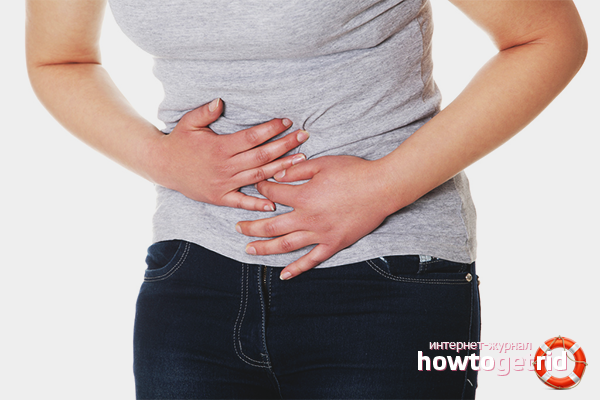
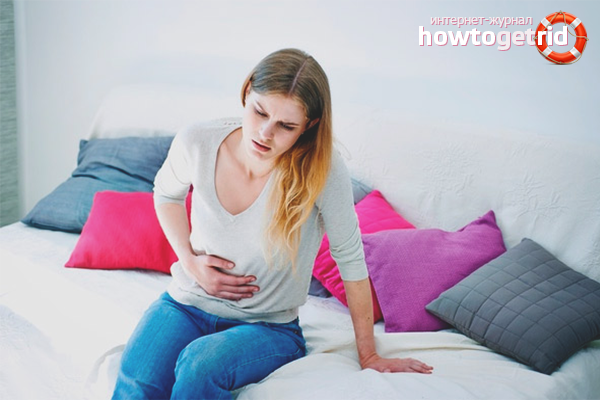
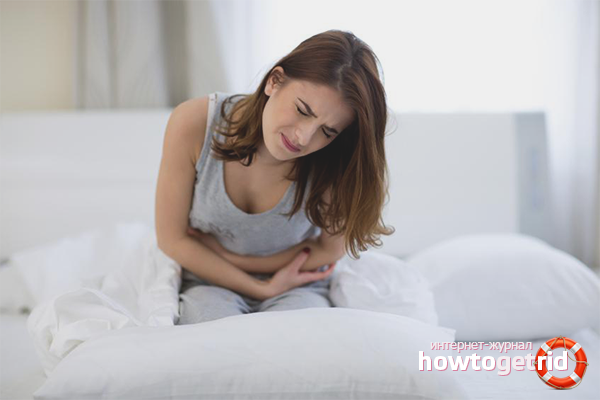
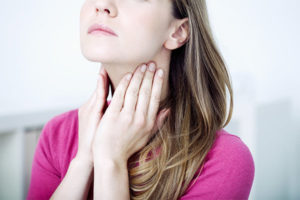

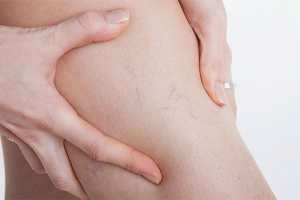

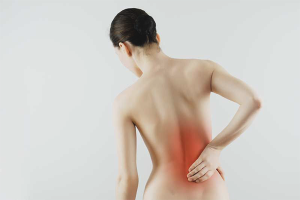
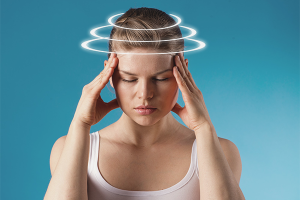

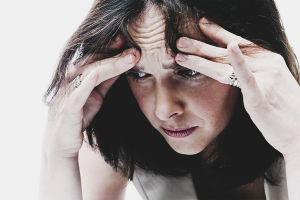
Submit
I heard that many people have a mono-diet on oatmeal, I haven’t tried it myself, but they say a super-effect.